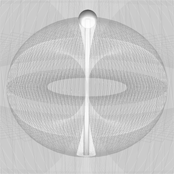



































conceptual inquiry regarding meaning » reality » self/selfhood
When we think about what an experiencer is, we consult our experience and think the kind of thing I am; I'm an experiencer. So, paradigmatically, we think of experiencer in terms of experiencer as self. Yet the central J-node question is more properly understood as being about, not just experiencer as self, but experiencer as such—one of three interdependent conditions making experience possible. An experiencer as such is just that for which experience occurs. To think about experiencer as such, we must not only think about experiencer in its own terms (as self), but also in terms of how it's interdependently related to experiencing and experienced—paradigmatically dynamic and world, respectively—like so:
| J | experiencer as such | |||
| experiencer | ...as dynamic | ...as self | ...as world | |
That's the basic-most formal analysis of experiencer as such. To consider what these conceptual forms actually mean, we must consult the actual experiences they indicate. A range of actual experiences can be indicated by each term, depending on who's asking. In any case, what we're looking for is how these concepts have shown themselves. So, the questions become How has experiencer shown itself as dynamic, as self, and as world? Here is a preliminary attempt to negotiate possible ways to bring together our formal indications with what has actually shown itself in our experience:
_experiencer as dynamic
As dynamic, an experiencer isn't a thing; it's a process. This doesn't just mean that the point of view of something with a fixed nature (identical over time) is in the process of moving about a context. It means that the point of view is never a "point" at all, but a duration (however finite). It's very nature is change-like; it's a process—becoming, transforming. So, how is this shown in experience? Consider how we listen to music. We don't hear a song as a collection of notes put together in a particular way. The song is more than the sum of its parts. We hear the song as a whole as its melody and rhythm carry us along in real time. If it's a particularly moving song, and we let ourselves be moved by it, we can in some sense become the melody and rhythm. Our moving/changing/transforming nature shows itself. Perhaps there's always a part of our experience that's like listening to music. Perhaps there's always a part of our experience that's durational and experienced as an analogue continuum—one that can't be broken into bits. Perhaps this at least in part involves the continuous process of comparing what's immediately presented before us to the whole of our experience—a process of finite duration. Perhaps we're like eddies in a river—local events occurring in a larger, continuous movement.
_experiencer as self
As self, an experiencer is shown as an unique point of view. It's that point of view I'd call mine. Moreoever, it shows itself as a self-organizing entity. That's not to say it's not contextualized or contingent. It's just to say that it has its own locus of organization and internal logic. This shows itself in human beings as our peculiar ability to make our own decisions. For us, one's self appears as a self-determining agent in the world. In other non-human experiencers it could just mean the principle that distinguishes them from their environment—appearing as a source of activity and not just a consequence of activity—perhaps what the ancient Greeks called psyche.
_experiencer as world
As world, an experiencer is that point of view which every participant in a given domain shares. The unique point of view of experiencer as self is but the tip of an iceberg. Most of what makes up any experiencer is transpersonal. Human beings all share a common way of perceiving the world. Dogs also share a common way of perceiving the world, and they can smell things we can't. In this sense, experiencer as world is a species. But as a world is generally a domain of significance (see K1), cultures are also worlds, as are hobbies, and people in cultures and people who practice hobbies share experiences, some of which are peculiar to their worlds. Now, we can include in our set of experiencers all experiencers whatsoever and ask how we all perceive the world the same, and the kind of answer we give would likely need to be given in a shared language—so, probably math. But whichever world we're referring to, there's still always a context. As world, experiencer adopts the point of view of the context (however big or small). We can imaginatively abstract ourselves from our particular context—even imagining a view from nowhere—but an actual view from nowhere is impossible. As world, an experiencer is an experiencer of a type.
Together these three ways experiencer is shown constitute experiencer as such. It may help to diagram their connection. Consider a cone. The (unique) apex may represent experiencer as self, the (common) base experiencer as world, and the (mobile) line segments spanning the distance between the apex and the base experiencer as dynamic. This cone—again, paradigmatically self—and an inverse cone representing experienced as such—but paradigmatically world—interpenetrate, for, once again, the ways experiencer is shown necessarily go together with the ways experiencing and experienced are shown. We can't think of any of these ways of conceiving of experiencer without at the same time giving corresponding accounts of experiencing and experienced.
